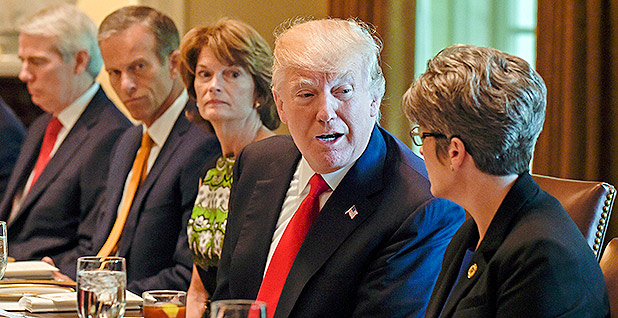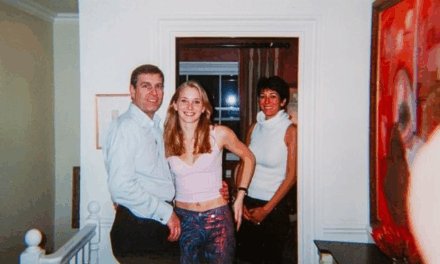Hershel “Woody” Williams was the last surviving Medal of Honor recipient to have fought in the Battle of Iwo Jima.
The biggest problem was the many steel-reinforced “pillbox” bunkers protecting the Japanese airfields.
“Bazookas and that sort of thing had no effect on them, because they were so thick and well built,” Williams said in a 2017 interview. “The only way to actually eliminate the enemy inside those pillboxes was by flamethrower.”
The battle saw heavier than usual casualties. Williams had initially been one of several demolition sergeants, but by Feb. 23, 1945, he was the only one left. So, he bravely volunteered to go forward as the last flamethrower to try to quell the devastating machine-gun fire from the pillboxes.
In four hours, with only four riflemen to protect him, Williams managed to wipe out seven pillboxes. He repeatedly prepared explosives in a safe area, struggled back to where the enemy was, and then set off the charges.
One time, he jumped onto one of the pillboxes from the side and shoved the nozzle of his 70-pound flamethrower into an air vent pipe and fired, killing everyone inside. Another time, he charged bayonet-wielding enemies and killed them with one burst of flame.
In a 2020 interview, he explained where bravery comes from.
“Everybody has some instinct of bravery. And, as long as they can control the fear, you can be brave. But if fear overtakes you and becomes the dominant instinct, you cannot operate. You cannot operate under fear. Your brain won’t let you.
“I feel that our upbringing had some influence on our bravery because we were taught in the depression years, if you didn’t have it, you had to make it,” Williams said. “And the only way you could make it was to work at it. Our upbringing gave us the confidence that developed into bravery.”
America was and is worth fighting for, he said. “If we lose our freedom we lose America.”
…”Service is within all of us,” he continued. “Every time we do something to help another person, we get a residual of that that makes us feel good, makes us feel proud that we could do something for someone else. And, there’s no feeling like it.”
In the last few years, Williams observed that Americans have become more separated than at any time since the Civil War. “We must come back together as a nation and as a people to where we can truly say, ‘We are the United States of America.'”
I did not grow up during the Great Depression but my parents did and it left a mark on them that definitely distinguishes them from their children who had it comparatively easy. I think about that when I read accounts from people like Stew Lahey who also fought at Iwo Jima.
Lahey joined the Marine Corps in 1944 when he was 17 years old. His father had to sign for parental consent. His father was a World War I veteran, and he wanted his son to join to learn discipline.
“We heard of guys getting killed and we needed more troops,” Lahey recalls. “[We said] let’s go do our part. That’s the reason I wanted to go.”
Think about that. He heard people had been killed and that’s why he wanted to go.
“A lot of guys gave up their lives so they could have freedom. People don’t really understand or appreciate the freedom they have in this country,” Lahey says. “We were all brothers. Black, white, we were all brothers under God’s wing looking out for one another. If you see something coming to someone else, you stand up to defend them and help them. It was a great feeling for camaraderie and that’s what I loved.”
…Today, when reflecting on his time in the Marine Corps, he talks a lot about faith and his love for life.
“It was for a great cause,” he says about his time in the service. “You didn’t even think about it. You just did your job. As far as I’m concerned, if I was 18 or 17 again in the conflict like that, I would do exactly the same thing.”
Republican Sen. Lisa Murkowski didn’t grow up during the Great Depression. She was born in 1957 while her father was fulfilling his military obligation in the U.S. Coast Guard. He would go to serve as the Alaska Commissioner of Economic Development before being elected to the U.S. Senate in 1980 and the governor of Alaska in 2002. Lisa succeeded him in the Senate where she has served now for 23 years.
On Monday, Sen. Murkowski sat down for a 45-minute interview with The Foraker Group, “the state’s largest gathering of nonprofit and tribal leaders.” During the interview, she confessed to being fearful.
U.S. Sen. Lisa Murkowski told a room full of Alaska nonprofit leaders that the tumult of tariffs, executive orders, court battles, and cuts to federal services under the Trump administration are exceptionally concerning.
“We are all afraid,” Murkowski said, taking a long pause. “It’s quite a statement. But we are in a time and a place where I certainly have not been here before. And I’ll tell ya, I’m oftentimes very anxious myself about using my voice, because retaliation is real. And that’s not right.”
Credit to Murkowski for giving voice to her fears. But there’s nothing really keeping her from leaving the Republican Party and caucusing with the Democrats besides fear. In 2010, she lost the Republican Party’s nomination to serve another term, but ran in the general election as a write-in candidate and won. Then, in 2022, the Alaska Republican Party endorsed a challenger, as did Donald Trump, but she won the nomination anyway. This was despite her decision to vote to convict Trump in his Second Impeachment Trial.
Despite her long tenure in the Senate and accrued seniority, she is relegated to chairing the Committee on Indian Affairs. To be sure, this is an important position for her state which has a large indigenous population, but it keeps her on the sidelines for the most important policy debates within the party. She has a position on the Appropriations Committee, but she’s watching Elon Musk usurp that committee’s authority to control how money is spent.
The potential cuts she is most stressed by, she said, are broad changes to Medicaid, the Supplemental Nutrition Assistance Program and the National Endowment for the Humanities, because of the disproportionately large impact they have on Alaskans. She also said she was unnerved by how USAID had “just been obliterated,” and by threats to end Ukrainian refugee resettlement inside the U.S.
Murkowski said that amid recent rumors that AmeriCorps would be terminated, she’d texted Trump’s Chief of Staff Susie Wiles to try to register her concerns, but wasn’t clear how effective that kind of access to the White House might ultimately prove.
“I share this with you not to say that ‘we don’t know anything,’ but I’m saying that things are happening so fast through this Department of Government Efficiency, DOGE … none of us understand the half of it,” Murkowski said. “It’s literally piecing it together.”
I understand that’s she fearful that speaking up will put her physical and political security at risk, as well as potentially harm the constituents she represents. Giving open expression to those fears is a form of bravery. But it’s not enough.
As Hershel ‘Woody’ Williams said, “if fear overtakes you and becomes the dominant instinct, you cannot operate. You cannot operate under fear. Your brain won’t let you.” Murkowski hasn’t reached this point, yet. But she also hasn’t reached the correct conclusion, which is that she cannot continue to serve this political party and still expect her brain to operate.
The Democrats can offer her the position as ranking member of Indian Affairs and a continued position on the Appropriations Committee. There’s no reason for her to turn that offer down, except fear.
Williams said, “Every time we do something to help another person, we get a residual of that that makes us feel good, makes us feel proud that we could do something for someone else. And, there’s no feeling like it.” Lahey said, “If you see something [bad] coming to someone else, you stand up to defend them and help them.”
This can only be done by switching parties.








People need to drop their fear and get angry. Not enough good people are angry.
Another great post, thanks.
My uncle was in some of those battles. The Army decided he had language skills so they sent him to language school in Michigan where he learned Japanese, and then they sent him to the Pacific to serve as a translator. He was on the deck of the USS Missouri when Japanese officials signed the official Instrument of Surrender.
Before that, one of his tasks was to translate his superiors orders to Japanese soldiers holed up in pill boxes and caves, telling them, for example, they had 1 minute to surrender, drop their weapons, and come out with their hands up…or they’d be incinerated with flamethrowers. For many of them, his was the last voice they heard. He had night terrors the rest of his life.
Here’s the thing about Murkowski, Collins, McConnell, et al: the “courage” being asked of them is, by comparison, almost laughably trivial. Cut a deal with Chuck Schumer where in exchange for your vote you get pretty much whatever you want: keep your committee assignments (or change them), retain your chairmanships, get priority for funding whatever infrastructure projects your state wants, get breaks for your key industries/employers/constituencies, *and* take down the fascists who’ve taken over the Republican party.
It’s not a rainbow-colored pony, but it’s a pretty good deal!